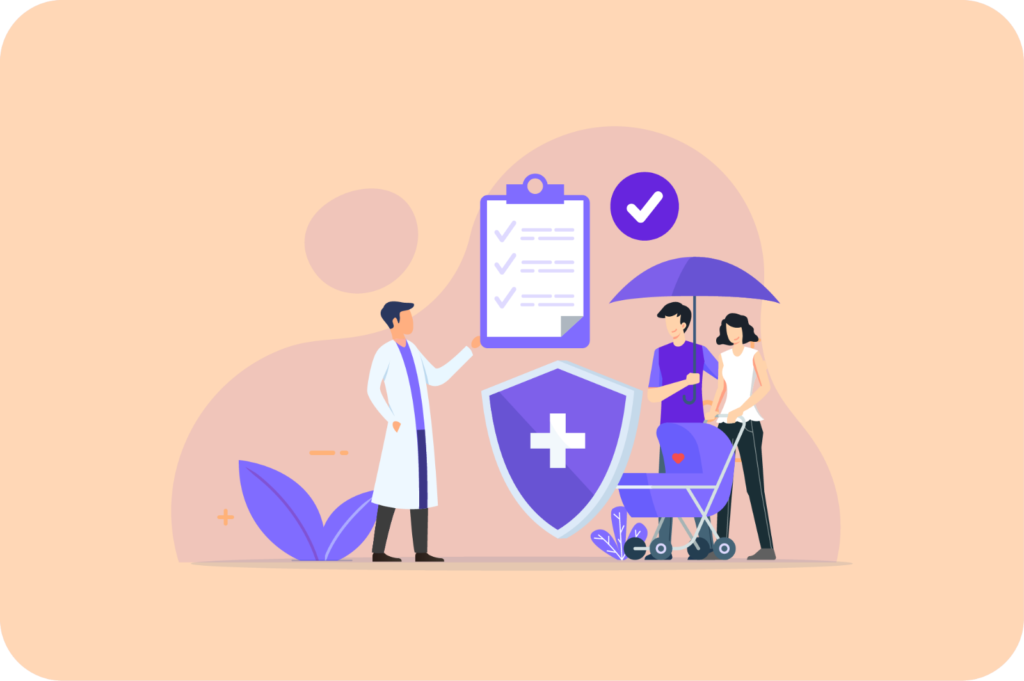Health insurance is like a safety net that helps you and your family manage unexpected medical expenses. While it might sound complicated, it’s actually easy to understand if we break it down step by step. This guide will help you grasp everything about health insurance in India and how it works.
What is Health Insurance?
Health insurance is a type of agreement between you and an insurance company. You pay a certain amount of money (called a premium) regularly, and in return, the company promises to cover your medical expenses, either partially or fully, when you need treatment.
Types of Health Insurance Plans
- Individual Plans: These cover only one person.
- Family Floater Plans: A single policy covers your entire family, sharing the total coverage amount.
- Group Plans: Offered by employers to employees.
- Senior Citizen Plans: Tailored for older people.
- Critical Illness Plans: Provide coverage for specific serious illnesses like cancer or heart diseases.
Why Do You Need Health Insurance?
Medical treatments can be expensive, and emergencies often come without warning. Health insurance ensures:
- You don’t have to worry about hospital bills.
- You get timely and quality healthcare.
- Your savings are not wiped out by medical emergencies.
Important Features of a Health Insurance Policy
1. Coverage for Common Illnesses
Health insurance covers common illnesses and diseases. However, some plans may exclude certain conditions. The Insurance Regulatory and Development Authority of India (IRDAI) has standardized policies to reduce confusion.
2. No-Claim Bonus (NCB)
If you don’t claim any medical expenses during a policy year, the company rewards you. This could be an increase in the total coverage or a reduction in your premium.
3. Ambulance Charges
Some policies also cover ambulance expenses. It’s wise to check if your policy includes this.
4. Network Hospitals
Check how many hospitals in your city are tied up with the insurance company for cashless claims. A wide network ensures you get treated without paying upfront.
5. Free Health Check-Ups
Many policies offer annual health check-ups at no extra cost. Regular health monitoring helps in early detection of illnesses.
6. Cashless Hospitalization
With this feature, you don’t need to pay upfront at the hospital. The insurance company settles the bill directly with the hospital.
7. Waiting Period
Some treatments have a waiting period before they are covered. For example, pre-existing conditions might require a waiting period of 2-4 years. Always check this.
8. Room Rent Limits
Some policies set a cap on the room rent. If your room costs more, you’ll need to pay the difference.
9. Sub-Limits and Co-Payment
Sub-limits restrict how much the insurance company will pay for certain treatments. Co-payment means you share a percentage of the total bill with the insurer.
10. Daycare Procedures
Many treatments today don’t require 24-hour hospitalization. Make sure your policy covers such procedures.
11. Pre and Post-Hospitalization Expenses
Insurance may also cover medical expenses before and after your hospital stay. The duration of this coverage varies by policy.
Factors to Consider When Choosing a Policy
- Premium: Make sure it fits your budget. If premiums are high, consider a top-up plan for additional coverage.
- Coverage Amount: Assess your needs and choose sufficient coverage.
- Company Reputation: Research the company’s background and claim settlement ratio.
- Policy Terms: Read the fine print to understand exclusions and conditions.
- Online vs. Agent: While agents can provide personal assistance, online platforms like Policy Bazaar offer convenience and often better prices.
Tips to Maximize Your Health Insurance Benefits
- Maintain Medical Records: Keep copies of all health check-ups and treatment reports. These act as proof of your health condition when you bought the policy.
- Know Your Network: Familiarize yourself with the cashless hospitals in your insurer’s network.
- Avoid Misrepresentation: Be honest about your health when applying for a policy to avoid claim rejection.
- Use Free Check-Ups: Take advantage of free health check-ups included in your policy.
- Plan for the Long Term: Choose a policy with benefits that suit your family’s needs for years to come.
Emergencies and Claim Process
In emergencies, here’s what to do:
- Show your health insurance card at the hospital’s insurance desk.
- Ensure the hospital informs the insurer for cashless claims.
- If you forget to inform the insurer immediately, notify them as soon as possible.
- For non-cashless claims, submit the required documents to get reimbursement later.
Online Platforms and Policy Bazaar
Online platforms like Policy Bazaar simplify the process of comparing and buying health insurance. They provide:
- Tailored recommendations based on your needs.
- Assistance during claims.
- A wide range of options at competitive prices.
Conclusion
Health insurance is not just a policy but a shield that protects you and your family during tough times. By understanding the terms, evaluating your needs, and choosing wisely, you can ensure financial security and peace of mind. Start early, stay informed, and keep yourself and your family protected.



Pingback: 5 Best Yoga Poses for Pregnancy: Instant Relaxation at Work
Pingback: Female Genital Tuberculosis: 7 Key facts to know
Pingback: Diaphragm Contraceptive: 5 Benefits & How it Works for Effective Birth Control
Pingback: 7 Essential Family Planning Tips for a Happy and Balanced Life
Pingback: False Miscarriage Diagnosis: 7 Key Lessons Every Parent Should Know
Pingback: Low Dose Birth Control: 7 Benefits and Risks Every Indian Woman Should Know